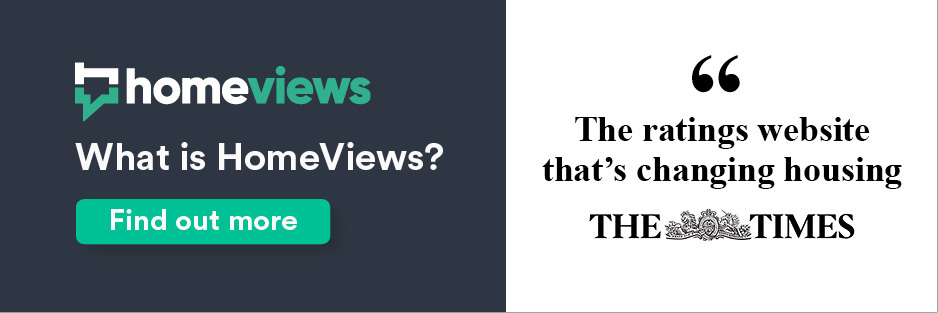If you’re buying property in the UK, you’ll need to know whether the purchase will be freehold or leasehold. You may have heard of these terms before, but what do they actually mean? This simple guide outlines everything you need to know about freehold vs. leasehold and how each one affects how you own your property.
Leasehold vs. freehold FAQs
What is freehold?
Buying a property freehold simply means that you own the building as well as the land it stands on. Freehold and leasehold are the two main forms of legally owning property in the UK. Freehold is the normal form of ownership for houses.
What is leasehold?
A leasehold purchase means that you own the house/flat/relevant building, but you have to lease the land it stands on from the freeholder. The freeholder owns the land. This is the normal form of ownership for flats.
How do I know if a property is freehold?
To find out if a property is leasehold or freehold you can check the Land Registry website. Here, you can search by postcode and look at a copy of the building owner’s title. The title is a document that confirms whether the property is freehold or leasehold.
If you already owned the property and were asked to sign a lease agreement during the purchase, then your property is leasehold.

Is freehold better than leasehold?
Freehold purchases are better than leasehold in terms of overall simplicity and complete ownership. Freehold properties tend to cost more upfront to purchase than leasehold, but leasehold properties often come with additional costs and legal complications or restrictions.
Leaseholder costs may include maintenance fees, annual service charges, building insurance, and ground rent. Restrictions applying to leasehold properties may include things like:
- The leaseholder may have to get permission to do work on the property.
- The freeholder might not allow pets.
- The leaseholder may not be allowed to sublet the property.
Also, the freeholder can choose to sell a property’s title while a leaseholder is living in the building. The new owner could then levy additional charges, such as an increase to any service charge, with little to no notice. Overall, when it comes to freehold vs. leasehold, owning a freehold property is simpler and less restrictive than a leasehold.
Are there benefits to owning a leasehold property?
There can be benefits to owning a leasehold property. These might include having access to communal facilities such as a gym or resident lounge within a development. A leasehold property within a development may also provide benefits such as concierge services or covered parking.
If work needs to be done on the property, the freeholder is responsible for arranging it. However, the leaseholder will often have to contribute towards the cost of the works.

What are the benefits of buying a freehold?
The main benefit of buying a freehold is that you own the land your property sits on. You don’t have to pay any additional charges or ground rent. You also don’t have to seek permission to make changes to the property.
Freehold properties are also easier to sell. The closer a lease is to expiring, the harder it is to sell a leasehold property. Mortgage rates also increase if the lease is under 70 years.
You can extend the lease on a property, but at a cost. Depending on the remaining time on the lease, extending can cost tens of thousands of pounds. However, this is changing – see our update on the Leasehold and Freehold Reform Act at the bottom of this article.
Is it worth buying the freehold of my house?
It can be worth buying the freehold of your property if the lease has unfavourable terms – such as few remaining years, high service charges, etc. However, be advised that buying the freehold on a leasehold property is often an expensive and time-consuming process.
Is a 999 year lease as good as freehold?

Having a 999-year lease is not the same as having a freehold, it is just a very long leasehold. It has the same advantages and disadvantages as a shorter lease, with the exception of not having to worry about the lease running out or needing a renewal.
Having a 999-year leasehold still wouldn’t exempt you from paying any necessary ground rent and service charges to the current freeholder, for example. The long lease time just takes away one of the main causes for concern regarding this arrangement.
Are freehold houses worth more than leasehold?
Leasehold properties do tend to be cheaper than freehold properties of the same type, because of the risks attached to leasing. The primary concern being the number of remaining years on the lease. However, this is just a general trend, not an absolute rule.
Does a freehold mean you own the land?
If you own the freehold, you own the property and the land it stands on. The title for the property will list you as the freeholder. You will have complete ownership over that land until you choose to sell it.
Read more
How long does a freehold last?
The freehold on a property lasts until the owner decides to sell it. At the point of sale, the freehold then transfers to the new owner.
How long does a leasehold last?
Leaseholds last for a set number of years. Standard leasehold lengths are 90 or 120 years. However, leaseholds can last as long as 999 years.
As the length of the lease decreases, so does the value of the property. Short-lease properties can rapidly drop in value. For example, a property with a 60-year lease is worth 10 per cent less than one with a 90-year lease.
What happens when a leasehold runs out?
When a leasehold expires, the ownership of the land and the property reverts to the freeholder. This means that the freeholder now owns the property.
It used to be the case that if you have lived in a property for more than two years, you have the right to extend the lease by 90 years. Now, thanks to the Leasehold and Freehold Reform Act, this is no longer a requirement. However, you would have to pay for this extension. Extension fees can cost up to 20 per cent of your property’s value. Again, the recently signed Reform Act aims to make this cheaper.

Can you turn a leasehold into a freehold?
In certain situations, you can turn a leasehold into a freehold. Leaseholders of flats can buy the freehold for their property with certain restrictions. These include:
- The building needs to contain at least two apartments
- At least 75% of the building is used for residential purposes
- At least 75% of the flats are owned by leaseholders who own long leases of at least 21 years
- At least half of the leaseholders want to buy a share of the freehold
- If there are only two flats in the building, both leaseholders must want to buy the freehold.
Once a group of leaseholders have purchased the freehold, they can set their own ground rents and service charges. However, they are then responsible for maintaining the building.
Can a freeholder refuse to sell the freehold to leaseholders?
Freeholders cannot refuse to sell the freehold to leaseholders of flats on the property, if they meet the listed requirements. It is a legal right for leaseholders to have the option to buy out the freehold if they meet these criteria.
What do leaseholders commonly dispute with freeholders?
Common disputes made by leaseholders against freeholders involve the cost of annual service charges. The HomeOwners Alliance says that 26% of all leaseholders in the UK feel that they are being overcharged by their freeholder.
Similarly, 23% of leaseholders complain that they have a lack of control over how and when major works are done. 18% experience problems when major works are carried out, such as excessive noise or disruption.

Freehold vs. leasehold: which is better?
The question of freehold vs. leasehold is not a straightforward one. Buying a freehold property is generally simpler and more flexible than a leasehold. However, most flats are leasehold properties.
If you are buying a leasehold, you must check how long is left on the lease. The value of a leasehold property is tied to the length of its remaining lease. The longer left on the lease, the better.
It’s also worth checking how much the ground rent and service charges are if buying a leasehold property. Also, check whether you get access to any communal facilities or other benefits.
If you really don’t want to live in a leasehold property and you get on well with your neighbours, you might want to consider buying the freehold outright. Remember that you’ll need at least half the other leaseholders on board to do this. Buying a share of freehold is the most common way to turn a leasehold into freehold property.
Recent changes to leaseholds
There’s been a major reform of UK leasehold law on the cards for years. The first phase of the Leasehold Reforms (and Ground Rent) Bill came into effect at the end of June 2022. The main headline change then was that ground rents were abolished for new properties. This remains good news if you intend to buy a leasehold property to live in or rent out.
The new law also means that if you already have a leasehold property, the ground rent cannot be increased. Once your existing lease term expires, the new agreement must, by law, charge zero ground rent. Additionally, ground rent can no longer be charged on retirement properties.
Update May 2024: Leasehold and Freehold Reform Act becomes law
On 24th May 2024, the Leasehold and Freehold Reform Act became law. While some of the provisions originally outlined in the initial bill have been dropped, it has kept a number of changes that will make it easier and cheaper for leaseholders to live in, rent out, or otherwise manage their property. Some of the main provisions of the new law include:
- Banning new leasehold houses in England and Wales – but not on new flats.
- Making it cheaper and easier to extend your lease or buy the freehold for existing leaseholders in both houses and flats.
- Increasing the standard lease extension term to 990 years, up from the current 90 years, with £0 ground rent.
- Removing the requirement for new leaseholders to have owned their house or flat for two years before these changes apply to them.
- Making buying or selling a leasehold property quicker and easier, with a maximum time and fee for the provision of information to a leaseholder by the freeholder.
- Requiring transparency over service charges for leaseholders. I.e.: Freeholders or their management companies must show clearly and transparently how they charge for all elements of their service charge fees.
- Replacing buildings insurance commissions with a transparent administration fee for managing agents, landlords and freeholders.
- Extending access to “redress” schemes for leaseholders who feel they’ve been a victim of poor practice.
- Scrapping the presumption that leaseholders should pay the freeholders’ legal costs when challenging poor practice.
- Granting freehold homeowners on private and mixed tenure estates the same rights of redress as leaseholders.
- Building on the legislation in the Building Safety Act 2022, that ensures freeholders and developers are unable to escape their liabilities to fund building remediation work.
- Allowing leaseholders in buildings with up to 50% non-residential floorspace to buy their freehold or take over its management. This is an increase from the current 25% threshold.
These legal rights and protections represent a continued effort to make leasehold properties less costly and complicated to own. This is good news for anyone looking to buy this kind of property now or in the coming years. The HomeOwners Alliance has further in-depth details about the main topics of debate for leasehold law changes, so take a look if you want to find out more.
If you need more advice on legal terms and issues around property purchases, our guides section has everything you need. We have guides on conveyancing, transfer of equity, ground rent and much more. We hope that this freehold vs leasehold guide gives you the right starting knowledge to help choose the right property for your needs.
HomeViews is the only independent review platform for residential developments in the UK. Prospective buyers and tenants use it to make an informed decision on where to live based on insights from carefully verified resident reviews. Part of Rightmove since February 2024, we’re working with developers, house builders, operators, housing associations and the Government to give residents a voice, recognise high performers and to help improve standards across the industry.



















